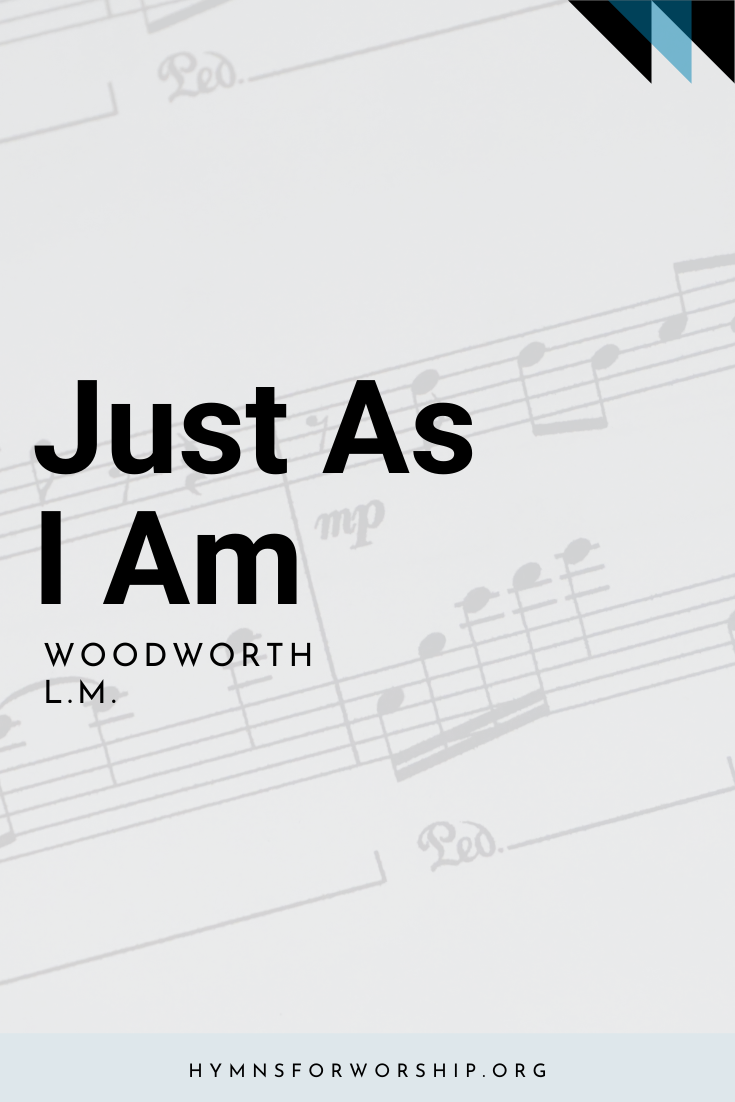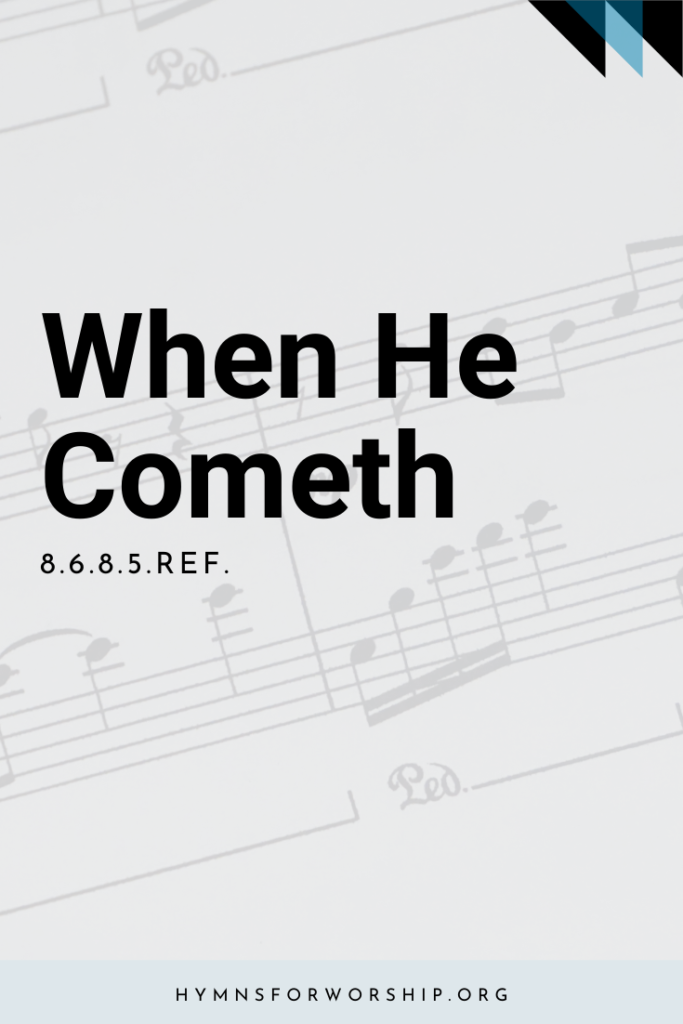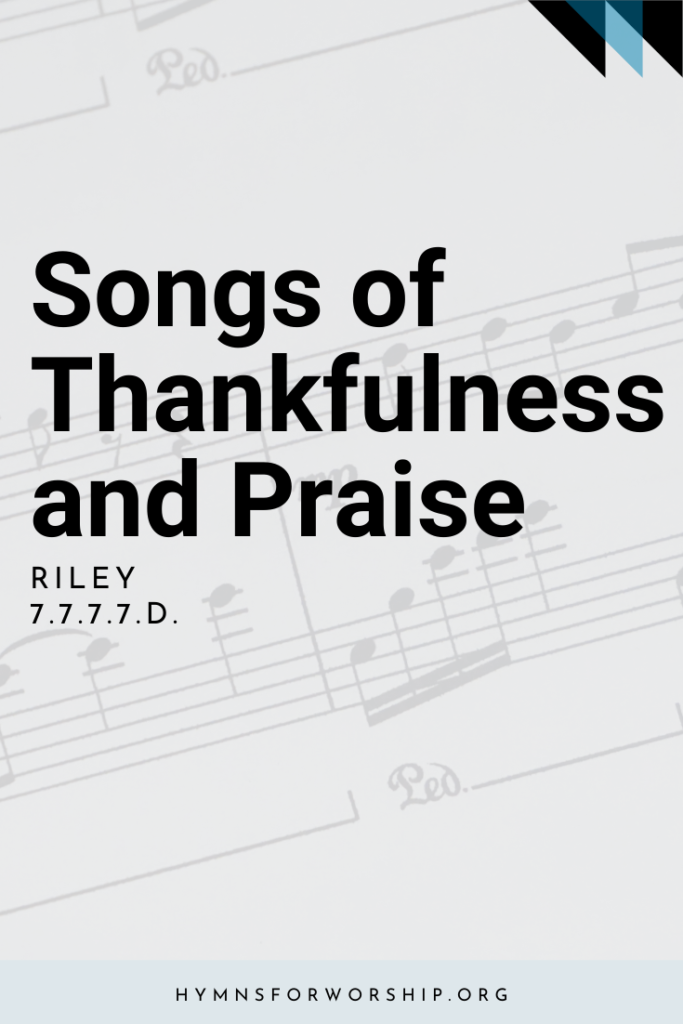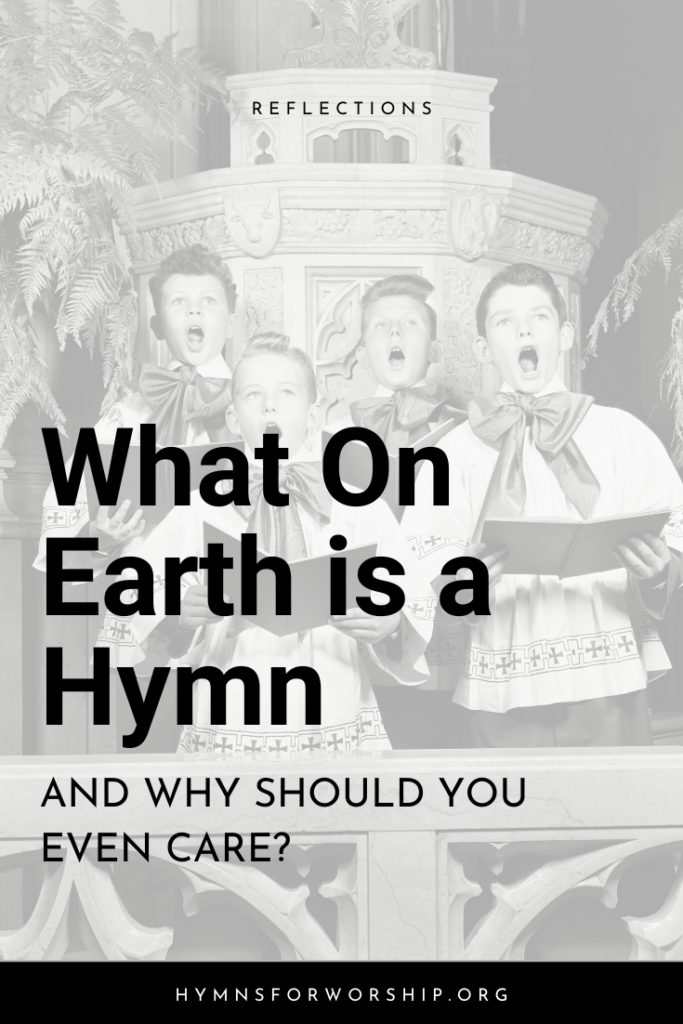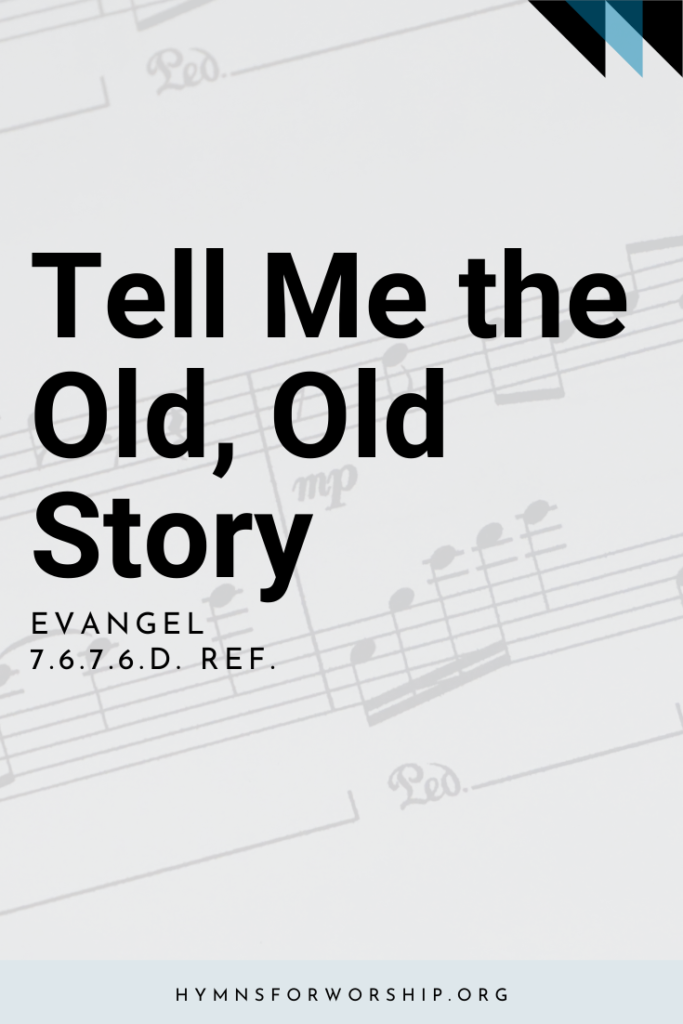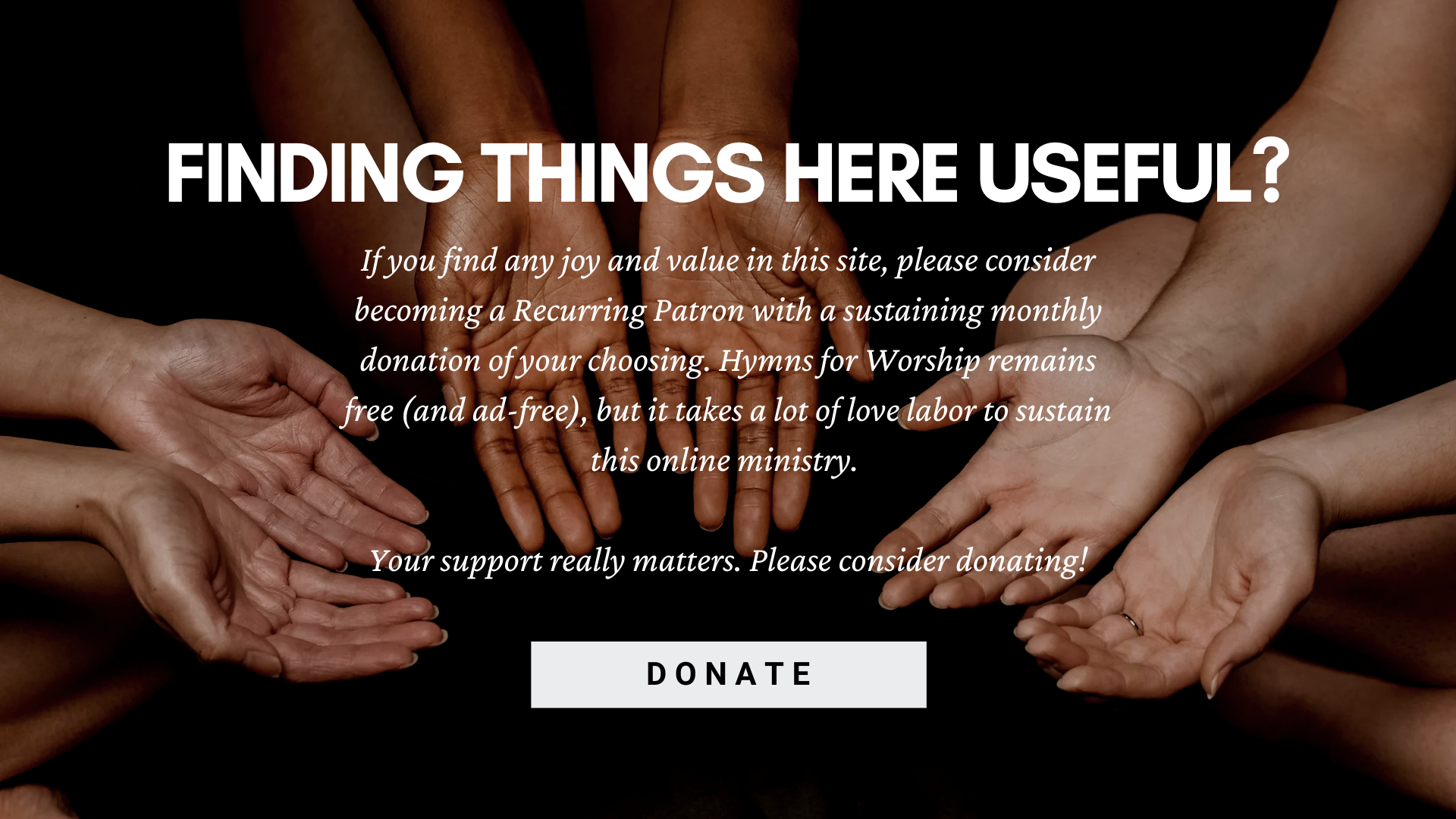GOSPEL >> Consecration
SDAH 314
Just as I am, without one plea,
but that thy blood was shed for me,
and that thou bidst me come to thee,
O Lamb of God, I come, I come.
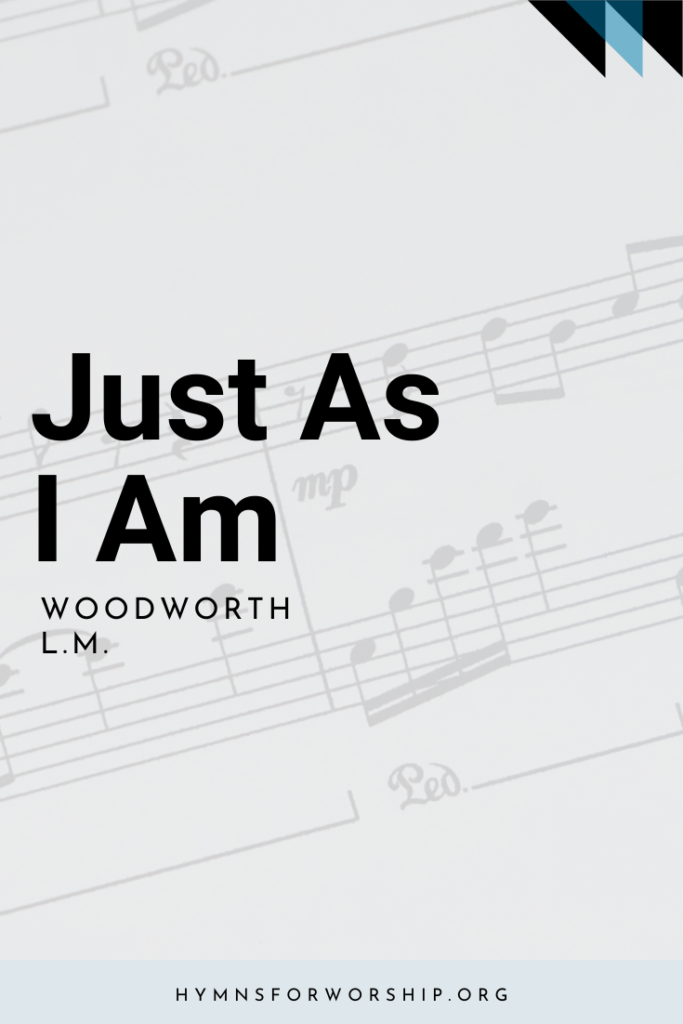

Text
1
Just as I am, without one plea,
but that thy blood was shed for me,
and that thou bidst me come to thee,
O Lamb of God, I come, I come.
2
Just as I am, and waiting not
to rid my soul of one dark blot,
to thee whose blood can cleanse each spot,
O Lamb of God, I come, I come.
3
Just as I am, though tossed about
with many a conflict, many a doubt,
fightings and fears within, without,
O Lamb of God, I come, I come.
4
Just as I am, poor, wretched, blind;
sight, riches, healing of the mind,
yea, all I need in thee to find,
O Lamb of God, I come, I come.
5
Just as I am, thou wilt receive,
wilt welcome, pardon, cleanse, relieve;
because thy promise I believe,
O Lamb of God, I come, I come.
6
Just as I am, thy love I own
hath broken every barrier down;
now, to be thine, and thine alone,
O Lamb of God, I come, I come.

Hymn Info
Biblical Information
See SDAH 313
Author
Charlotte Elliott (1789-1871)
Year Published
1834
Hymn Tune
WOODWORTH
Metrical Number
L.M.
Composer
William Bradbury (1816-1868)
Year Composed
1849
Alternate Tune
SAFFRON WALDEN, and other stanzas, SDAH 313
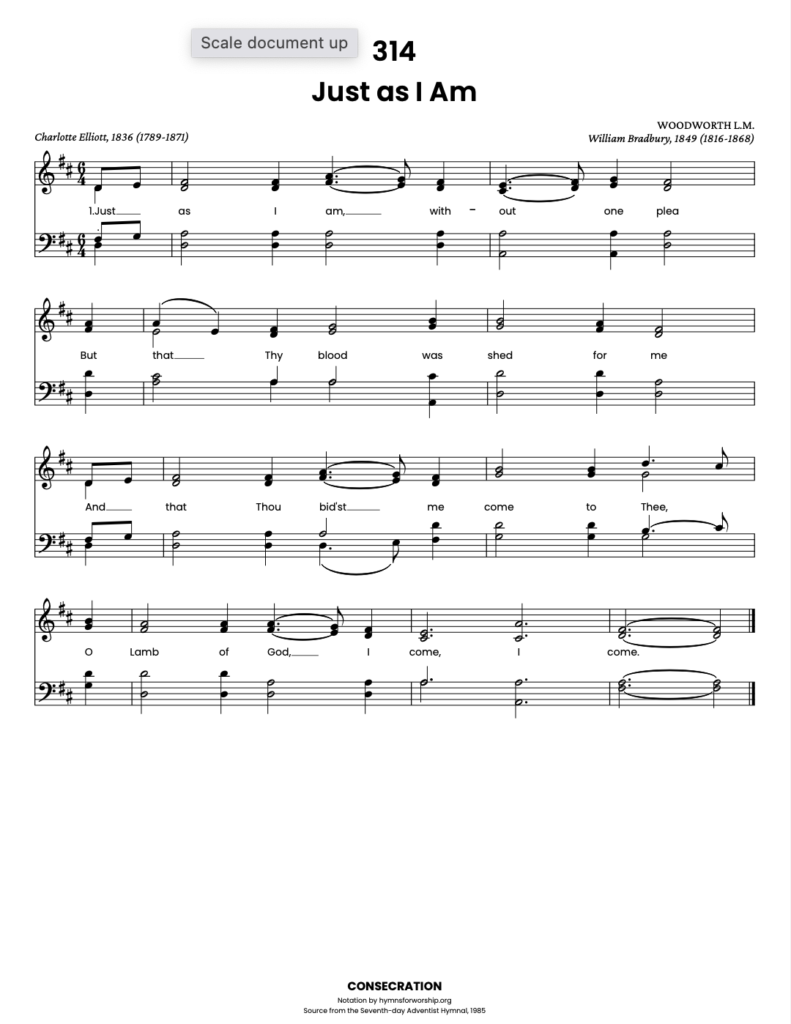
Watch
Notes
Get to know the hymns a little deeper with the SDA Hymnal Companion. Use our song leader’s notes to engage your congregation in singing with understanding. Even better, involve kids in learning this hymn with our homeschooling materials.
For comments on text, see SDAH 313. WOODWORTH was composed by William B. Bradbury (1816-1868; see Biographies), but originally was set to another text, “The God of Love Sure Indulge.” It was published in the 1849 Third Book of Psalmody by Thomas Hastings and Bradbury, Charlotte Elliott’s poem is in the meter 8.8.8.6. Since WOODWORTH is a Long Meter tune (8.8.8.8.), It is necessary to repeat the last two words, “I come,” which Bradbury did in his Eclectic Tune Book, 1860. The version of text and tune was used by evangelist Billy Graham as a regular appeal song in his large crusades, often sung by soloist George Beverly Shea (see SDAH 75).

